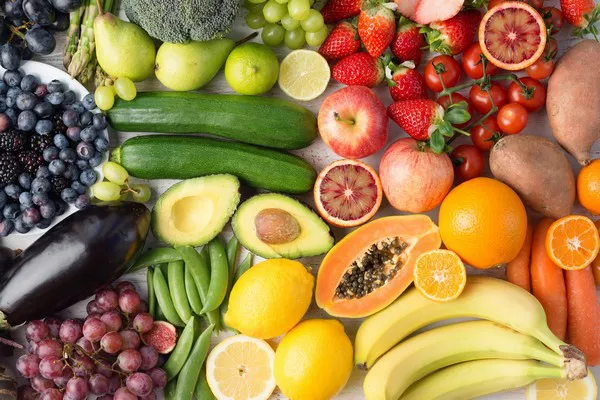Vitamin C, also known as ascorbic acid, is a vital water-soluble nutrient that supports immune function, collagen synthesis, and acts as a powerful antioxidant. Consuming fruits rich in vitamin C is an excellent way to ensure an adequate intake of this essential nutrient. In this article, we embark on a journey to explore and compare various fruits, determining which one boasts the highest vitamin C content, and uncover the benefits of incorporating these fruits into our diets.
The Importance of Vitamin C
Before delving into the fruits with the highest vitamin C content, let’s understand why this nutrient is crucial for our health. Vitamin C plays a pivotal role in supporting the immune system, promoting healthy skin, aiding in wound healing, and improving iron absorption. Its potent antioxidant properties also help protect the body against oxidative stress, reducing the risk of chronic diseases and supporting overall well-being.
Criteria for Comparing Vitamin C Content
To determine which fruit has the highest vitamin C content, we will consider several factors, including the amount of vitamin C per 100 grams of edible portion, variability in vitamin C levels due to ripeness and storage conditions, and the bioavailability of vitamin C in each fruit. It’s important to note that vitamin C content can fluctuate depending on these factors, and eating a variety of fruits can ensure a diverse intake of nutrients.
Fruits with the highest vitamin C content:
1. Acerola Cherry
When it comes to vitamin C content, the Acerola cherry (Malpighia emarginata), also known as the Barbados cherry or West Indian cherry, reigns supreme. This small, bright red fruit packs an impressive punch of vitamin C, with concentrations reaching as high as 1,700 to 4,000 milligrams per 100 grams of fruit. This remarkable potency places the Acerola cherry far ahead of other fruits in the vitamin C race, making it a true nutritional powerhouse.
2. The Runner-Up
Camu Camu (Myrciaria dubia), a berry-like fruit native to the Amazon rainforest, takes second place in the vitamin C contest. With vitamin C concentrations ranging from 1,882 to 2,280 milligrams per 100 grams, Camu Camu is another extraordinary source of this essential nutrient. Although lesser-known compared to other fruits, its impressive vitamin C content has led to increased interest in the health and wellness community.
3. Citrus Fruits
Citrus fruits, including oranges, lemons, limes, and grapefruits, are renowned for their refreshing taste and vitamin C content. While they may not surpass Acerola cherry and Camu Camu in vitamin C concentration, they are still excellent sources of this nutrient. Oranges, for example, typically contain around 53 milligrams of vitamin C per 100 grams, while lemons and limes offer approximately 53 to 29 milligrams, respectively. Grapefruits generally have slightly higher vitamin C levels, ranging from 31 to 38 milligrams per 100 grams.
4. Guava
Guava (Psidium guajava), a tropical fruit with a delightful blend of sweetness and tanginess, also deserves a spot on our list of vitamin C-rich fruits. On average, guavas boast approximately 228 milligrams of vitamin C per 100 grams, making them a substantial source of this nutrient. Additionally, guavas contain dietary fiber, vitamin A, and other essential vitamins and minerals, making them a nutritious addition to any diet.
5. Kiwifruit
Kiwifruit (Actinidia deliciosa) is renowned for its vibrant green flesh and unique taste. Apart from being a delicious tropical fruit, kiwifruit provides a notable dose of vitamin C. On average, it offers around 92 milligrams per 100 grams, making it a worthy contender in the quest for vitamin C-rich fruits.
6. Strawberries
Strawberries (Fragaria x ananassa) are not only beloved for their sweetness and versatility in various dishes but also for their vitamin C content. With approximately 59 milligrams of vitamin C per 100 grams, strawberries offer a delightful way to boost your vitamin C intake. They are also rich in antioxidants and other beneficial compounds that contribute to their health-promoting properties.
Other Fruits in the Vitamin C Arena
Several other fruits also deserve mention for their vitamin C contributions. Pineapple (Ananas comosus) provides around 47 milligrams per 100 grams, while papaya (Carica papaya) offers approximately 60 milligrams per 100 grams. Mango (Mangifera indica) and raspberries (Rubus idaeus) provide around 36 and 26 milligrams per 100 grams, respectively, adding diversity to the array of vitamin C-rich options available.
Incorporating Vitamin C-Rich Fruits into Your Diet
With such a diverse range of fruits high in vitamin C, incorporating them into your daily diet is both enjoyable and beneficial. Adding slices of Acerola cherry, Camu Camu powder, or citrus fruits to your morning smoothie can provide a potent vitamin C boost to start your day. Snacking on fresh guava, kiwifruit, or strawberries is a delicious way to keep your vitamin C intake on track throughout the day. Additionally, incorporating these fruits into fruit salads, desserts, and savory dishes can add both flavor and nutrition to your meals.
Conclusion
Vitamin C is a critical nutrient that supports various aspects of our health, from immune function to collagen synthesis and antioxidant protection. While Acerola cherry and Camu Camu lead the pack with the highest vitamin C concentrations, citrus fruits, guava, kiwifruit, strawberries, and other fruits also contribute significantly to our vitamin C intake. Embracing a diet rich in these vitamin C powerhouses can bolster our overall well-being and contribute to a thriving, energetic life. Remember to enjoy a variety of fruits to benefit from a diverse range of nutrients and health-promoting compounds. Always consult with a healthcare professional or registered dietitian to determine the best dietary choices for your individual needs and health goals.

